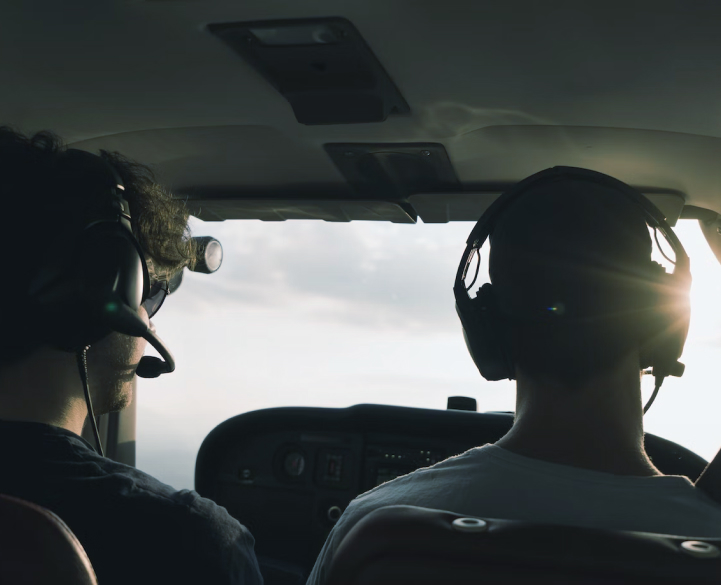
India’s aviation industry is continuously expanding, creating greater demand for competent pilots. As a result, the recognition of foreign pilot licenses and their validity in India has become a possible demand for many aspiring aviators worldwide. Whether looking to convert your foreign pilot license (FPL) or learn how current credentials compare to Indian aviation regulations, this guide will help understand the intricacies of foreign pilot license validity in India in 2025.
Foreign Pilot License Validity in India
India’s Directorate General of Civil Aviation (DGCA) oversees and supervises all civil aviation operations in the nation. The DGCA establishes the framework for foreign pilot license recognition, allowing foreign-trained pilots to fly in India under particular norms and procedures.
As of 2025, foreign pilot licenses are valid in India under certain conditions. This is especially important for pilots who have received training at overseas flight schools or who want to transfer their foreign licenses to Indian standards.
Foreign Pilot License Conversion Process
Foreign-trained pilots who want to fly commercially or privately in India must transfer their licenses to an Indian counterpart. This procedure ensures that the pilot satisfies the DGCA’s regulatory requirements.
Here’s how the conversion steps follow:
Eligibility Criteria:
- The pilot must be at least 18 years old
- The foreign license must be valid and issued by a competent aviation authority.
- A minimum flying experience, typically 200 hours for commercial licenses, is required.
- The license should be recognized by the DGCA, which means it must be issued by a country with a valid civil aviation agreement with India.
Medical Fitness:
- A certified medical certificate from an accredited medical examiner in India is required.
- Medical standards must meet DGCA regulations, which may differ from norms in other countries.
Ground School and Written Exam:
- Depending on the kind of foreign license, pilots may be required to complete a theoretical knowledge exam covering Indian aviation laws, air law, and meteorology.
- The written test assesses a pilot’s understanding of Indian aviation and safety standards.
Flight Test:
A flight test or check ride with a DGCA examiner is usually necessary to evaluate the pilot’s flying abilities and competence to operate aircraft in accordance with Indian procedures.
Endorsement for Specific Aircraft:
If the foreign license is for a specific aircraft type, pilots may need to complete additional training or check rides to get endorsements for the aircraft they wish to fly in India.
What Foreign Pilots Need to Know About Indian Aviation in 2025?
While the conversion procedure guarantees that pilots meet the standard of Indian aviation regulations, it is critical to understand the unique criteria and timeline involved. Here are some important factors to remember in 2025:
Recognition of Foreign Licenses: The DGCA recognizes licenses from a limited number of nations with whom it has aviation agreements. Pilots with licenses from these countries may apply for conversion immediately.
Validity of Converted Licenses: Once converted, the Indian license will have the same validity as any locally earned license, but pilots must maintain competence and complete any revalidation or renewal standards outlined by the DGCA. This applies to both foreign license conversion andCPL in India.
Language Proficiency: The DGCA requires pilots to demonstrate proficiency in English, as it is the international language of aviation. Pilots who obtained their foreign license from non-English-speaking countries may need to show additional proof of language proficiency.
Additional Training for Aircraft Types: Foreign pilots may require extra training or certifications for certain aircraft types, particularly if their previous training was on aircraft models other to those usually used in India. This may also be relevant when pursuing a CPL in India.
Why Choose FSTC Flying School for Foreign Pilot License Conversion?
FSTC Flying School understands the intricacies of foreign license conversion and has devised specific programs to enable foreign-trained pilots effortlessly convert to Indian aviation norms. Here’s what FSTC offers:
Dedicated Conversion Programs: FSTC Flying School’s bespoke programs ensure that foreign-trained pilots receive the training and support they require for a successful conversion.
Experienced Instructors: Learn from teachers who are familiar with both international and Indian aviation standards.
State-of-the-Art Simulators and Aircraft: Train with their fleet of modern aircraft, including the Cessna 172R and Tecnam P2006T, and utilize their world-class simulators to hone your skills.
Comprehensive Support: Walks you through each stage of the conversion process, from theoretical tests to flight inspections, to ensure you’re fully prepared to fulfill DGCA criteria.
As India continues to grow as a global aviation hub, the recognition of foreign pilot licenses and their validity in India becomes increasingly important. In 2025, foreign-trained pilots may securely convert their licenses and seek professions in India’s thriving aviation industry, with FSTC Flying School as their guide.
Individuals who are ready to convert their foreign pilot license or learn more about flying instruction in India, can get in touch with FSTC Flying School. They provide coaches for every step of the way in attaining aviation objectives!





Leave a Reply